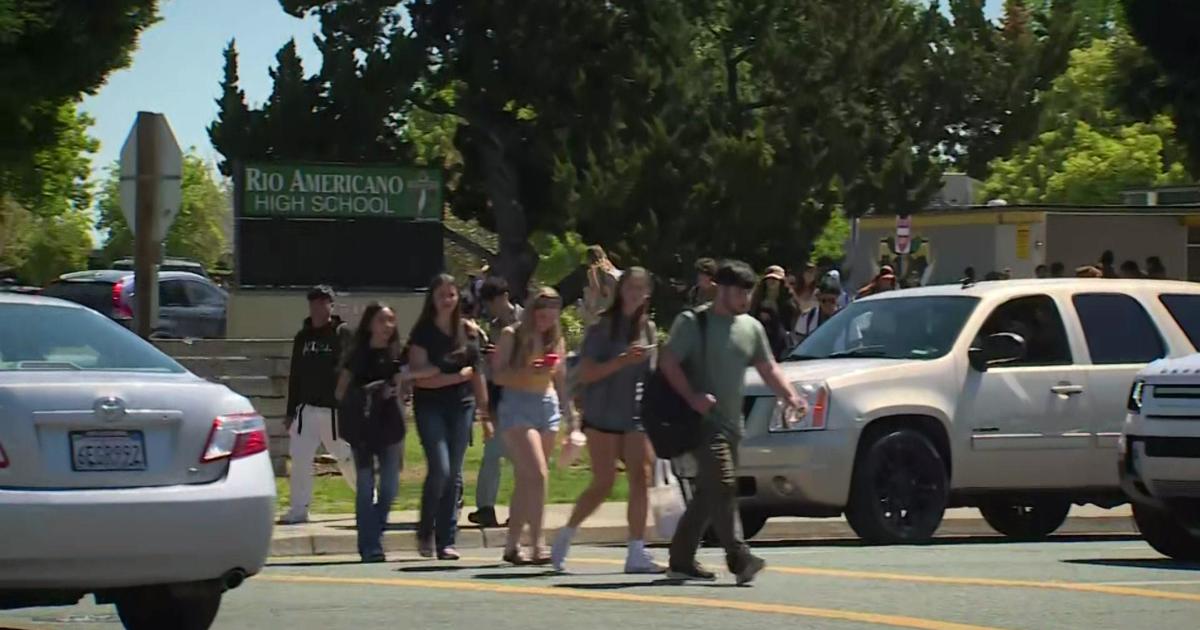Gov. Newsom Considers Aid For Immigrants Amid Coronavirus
SACRAMENTO, Calif. (AP) — Gov. Gavin Newsom said Tuesday he is working with the Legislature on an economic stimulus package for immigrants in the country illegally and others not covered by the federal stimulus package approved by Congress.
The federal government is dividing up about $30 billion to roughly 14 million California households this month, part of the federal CARES Act. But the checks — $1,200 per adult earning less than $75,000 and $2,400 per couple under $150,000 — only go to those who file their taxes using a Social Security number.
Those who use an individual Taxpayer Identification Number, including most living in the country illegally, are excluded.
The $2.2 trillion federal aid package also includes money to boost unemployment benefits by an extra $600 per week, money also unavailable to people living in the country illegally who have lost their jobs because of the COVID-19 outbreak.
About 2 million undocumented people are living in California, according to the California Latino Legislative Caucus. The group has asked Newsom to create a "Disaster Relief Fund" for cash payments to those immigrants until the state's emergency proclamation is lifted or they are able to return to work.
READ: Gov. Newsom Talks Taking Care Of Mental Health Amid Coronavirus Pandemic
Newsom said "all of that is being considered," adding it is part of a broader package he plans to unveil in May that will include "some economic stimulus strategies at a state level, not just waiting for the federal government to do that for us."
"Californians care deeply about undocumented residents in this state," he said.
California has been aggressive in expanding government-funded benefits for immigrants living in the country illegally. Last year, lawmakers made California the first state in the country to offer government-funded health benefits to low-income adults 25 and younger living in the country illegally.
Republicans have opposed those changes, noting the state taxes people who choose not to purchase health insurance while at the same time providing taxpayer-funded health care to non-citizens.
Jon Coupal, president of the Howard Jarvis Taxpayers Association that advocates lower taxes, said the taxpayer money in any state stimulus should be used for citizens. Immigrants without legal status are better helped by charities and the private sector, he said.
ALSO: Coronavirus Update: Sacramento County Extends Stay-At-Home Order Through May 1
California's revenues have tumbled amid the crisis and so spending will have to be prioritized, Coupal said.
"So what a lot of legal taxpaying citizens of California of all races and creeds and colors are going to ask themselves is: Is it appropriate to spend our tax dollars on those who are not here in a legal status?" said Coupal, adding he's disappointed Newsom hasn't delayed property tax payments.
The state has more than 17,000 coronavirus cases and at least 432 deaths, according to data compiled by Johns Hopkins University. However, infections are growing at a slower pace than officials had feared.
The number of COVID-19 related intensive care hospitalizations increased only 2.1% in the last 24 hours — down from the double-digit increases the state was seeing last week. Newsom said there is a sense of optimism about the curve of cases bending lower.
"We are seeing a slow and steady increase, but it's moderate,"" he said. "And it's moderate, again, because of the actions all of you have taken in terms of the physical distancing."
While physical distancing has helped slow the spread of the virus, it has also hobbled the state's economy. Non-essential businesses have closed and 2.3 million Californians have filed for unemployment benefits in the last four weeks.
The state Legislature has recessed until May 4 but state lawmakers have been discussing a state stimulus package for when they return.
"This is definitely a priority. We know people are suffering and they are suffering because we are asking them to stay at home," said Assembly Budget Committee chairman Phil Ting, a Democrat from San Francisco.
It's unclear what California can afford to do. The state has delayed the tax filing deadline to July 15, one month after lawmakers are constitutionally required to pass a state spending plan. On Monday, a memo from the Assembly Budget Committee said lawmakers will likely have to revise the budget in August, saying "it is possible the state will need to consider sizable ongoing reductions to major programs during this time."



